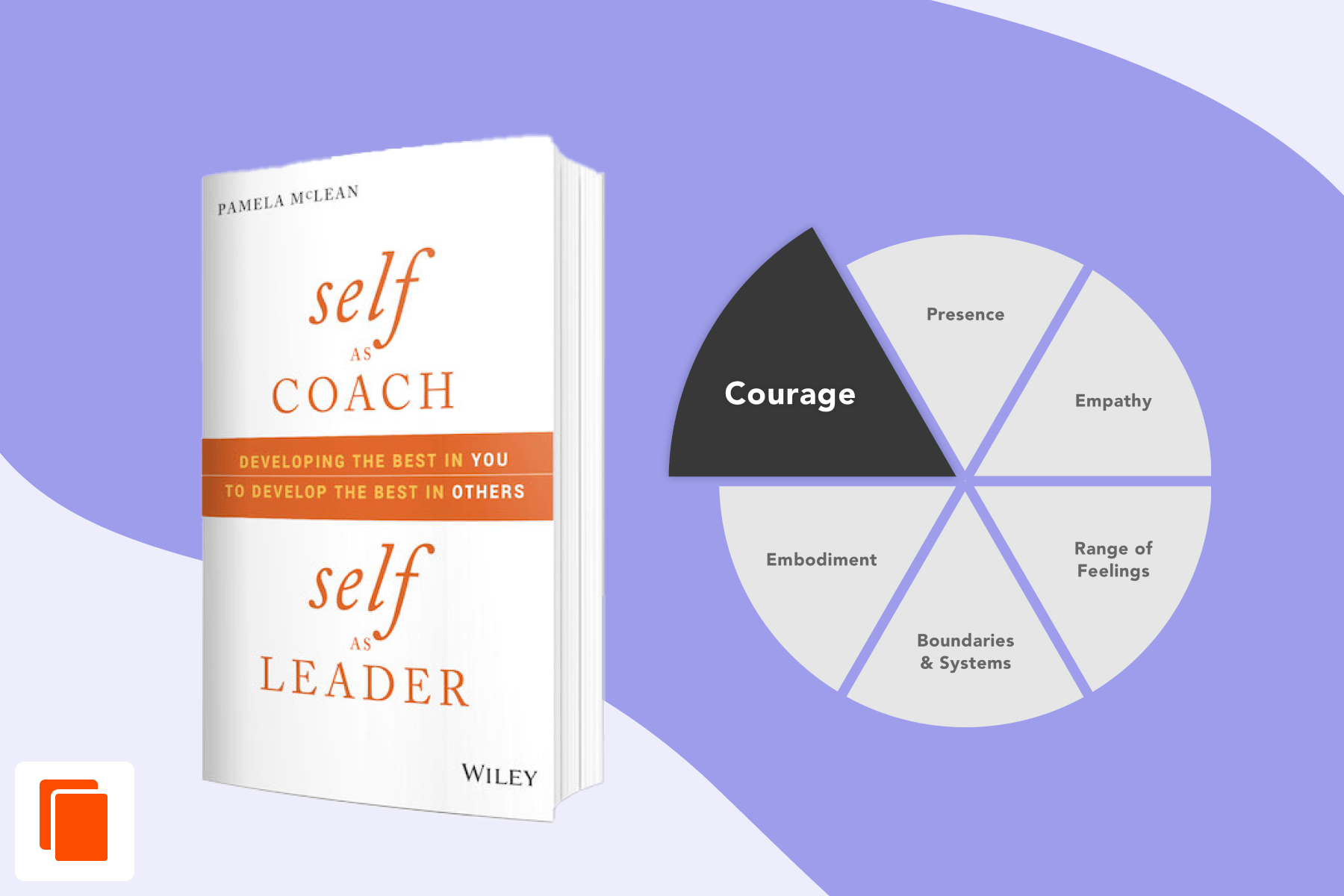Whether you’re leading people or coaching leaders, courage is an attribute that makes the difference between good and great. In the words of Aristotle, “Courage is the first of human qualities because it’s the quality that guarantees the others.” And while the bold courageous acts of taking big risks, setting a new vision, or leaping into unknown territory are regularly examined, too often we overlook the most important courageous acts that occur in our everyday conversations with others.
Choosing Courage Over Comfort
Every day, there are opportunities to be more courageous. Conduct a quick scan of the last few days: How often were you aware of something important that you needed to share with another person, but instead you stepped back and brushed it aside? Or perhaps you were upset by a particular situation, but rather than discussing it, you avoided the conversation. These are the everyday openings to choose courage over comfort, to lean into those moments that matter — and that so often create growth for others.
Why be courageous? If you’re a coach, you need to be willing to confront your own fears to be of service to the leaders you’re coaching. Leaders seek out a coach because something is not working as well as they or others would like it to. If they could pick up a book or tool and solve the problem, they would. But they’ve come to a coach because they’re want someone to help them see those things that are personally invisible, marginally accessible, or potentially uncomfortable for them to explore. That takes guts — from them and from their coach.
Likewise, leaders need to have the courage to stop and seize the openings that will help fuel awareness and positive change in others. It takes courage to make observations and share patterns you see in others without judgment or triangulation or rescuing. The power of courage is using what’s in the room in that moment and turning up the heat in a manner that allows the other person to step into new possibilities.
Getting Past What Gets in the Way of Courage
The barriers to being more courageous are different for each of us, but here are some of the common refrains:
It didn’t seem that important.
It didn’t feel like the right time.
I didn’t want to offend.
I find it too uncomfortable, so I gloss over things.
Do any of those resonate with you? We all do this, yet our work is better when we are able to summon the courageous path rather than resting in that old comfort zone!
Here are 3 practices that will help you choose the courage more often:
1. Bring Heart to Your Courage: When we bring heart into a courageous conversation, we create psychological safety. When we can link courage with heart, we make it easier to deliver our message and more likely to be heard and understood by another.
2. Bring Courage to Your Own Life: Set a goal that will deepen your capacity as a leader — something small yet important in your daily routines. Hold yourself accountable, ask for feedback and support from your peers, and have compassion for yourself when you go off the rails. When we start at home, we gain a keen appreciation for the power of our courage.
3. Count Your Courageous Acts: Spend the next ten days tracking small acts of courage, and notice the impact those moments created for you and others. Chances are, you’ll begin to notice what a difference a little more courage makes.
Courage grows in the choices you make and the actions you take every day. When you’re willing to speak your truth, share an important perspective or observation, be candid when it matters or provocative when necessary, you’ll gradually push yourself outside your comfort zone and, over time, you’ll not only expand your courage, you’ll deepen your impact.
Did you love the book Self as Coach, Self as Leader? You can help us get it out to more people by writing a review on Amazon! Publishers use reviews as a metric to make decisions about whether to translate books to new languages. Click here to show your support.




![[Video] Authors in the Field Ft. Peter Block](https://hudsoninstitute.com/wp-content/uploads/2025/09/Insight-blog-video-thumbnail-1.png)